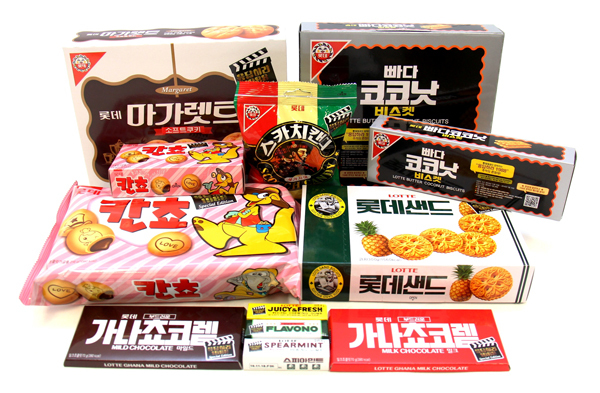Retro fever is spreading throughout South Korea, driving companies to invoke the past in their marketing efforts.
Sparked by a series of TV programs and dramas, the fad has made many consumers recall the times when owning a beeper was cool and going to Mcdonald’s in Apgujeong was a luxury.
Sparked by a series of TV programs and dramas, the fad has made many consumers recall the times when owning a beeper was cool and going to Mcdonald’s in Apgujeong was a luxury.

The 20-episode “Reply 1988” series aired by cable TV channel tvN has been at the center of the retro trend since late last year. The drama revolves around five teenage friends and their families in a small residential district of Ssangmoon-dong in northern Seoul. It focuses on how they grew up together when the nation was under rapid industrial growth, beginning from 1988, the year when Seoul hosted the Olympic Games.
The drama reminds viewers of the past by weaving content and products commonly found in the late 80s and the early 90s into the story.
Through fashion, snacks, cosmetics and electronics, companies subtly promoted their products in the drama, fostering an emotional connection with viewers and building a sense of trust, industry watchers said.
They added that such retro-themed marketing is likely to dominate the market this year as a core strategy to revive slowing domestic demand that has been hit hard by economic uncertainty.
According to the central bank’s data, consumer confidence slipped in January to a six-month low as households adopt a negative economic outlook due to China’s slowing economy and the dwindling stock market.
“Companies are paying close attention to retro fads and rolling out nostalgia-theme products and contents,” said Kim Ye-eun, a market analyst at LIG Research Center. “The move reflects an attempt to stimulate customers’ appetite and to get them to spend more amid the slowing economy.”
The spreading retro fever is a reflection of the present harsh reality, Kim added.
In a recent market survey by Trend Monitor, about 92 percent of respondents said that they feel that life today is tougher than before. About 64 percent also said they miss the past because they had happier moments back then.
Retro marketing mainly targets customers in their 40s who hold a stable income as well as teenagers who are curious about nostalgic items.
“People in their 20s and 30s have low purchasing power as they struggle to find jobs and homes. People in their 50s and 60s reduce their spending to better prepare for their lives in the future,” said Kim Cheon-ku, senior research at Hyundai Economic Research Center. “But people in their 40s are relatively stable in terms of employment status and residence stability, and they are bound to spend money on their kids and parents,” he said.
Companies that are riding on the retro wave in a big way include confectionary giants Lotte and CJ Cheiljedang. These companies have seen sales grow quickly by repacking products, which have already seen steady growth, with designs that are reminiscent of the past.
According to Lotte Confectionary, the sales of Ghana Chocolate grew 47 percent in just nine weeks, after the first episode of “Reply 1988” was aired on Nov. 6. The item was featured in the drama as a popular item once used by teenagers to express romantic feelings.
Hite Jinro, a leading distillery, released a limited edition of Crown Beer, a major beer brand in the late 80s that was discontinued many years ago. According to the company, 240,000 cans of the beer were sold in two weeks.
CJ Cheiljedang also released Baeksul Ham 88 edition, reminding consumers of the times when ham was regarded by many as a luxury.
CJ E&M, which produced the hit drama “Reply 1988”, is also expecting a rapid growth in advertising revenue as the drama had high viewer ratings.
Fashion brands are going retro as well, with clothing such as pants with rolled-up legs, duffel coats and baseball jackets. Meanwhile, electronic giants, such as LG Electronics, have been borrowing popular phrases from advertisements in the late 80s for their latest products.
By Cho Chung-un (christory@heraldcorp.com)
-
Articles by Korea Herald










![[Hello India] Hyundai Motor vows to boost 'clean mobility' in India](http://res.heraldm.com/phpwas/restmb_idxmake.php?idx=644&simg=/content/image/2024/04/25/20240425050672_0.jpg&u=)









